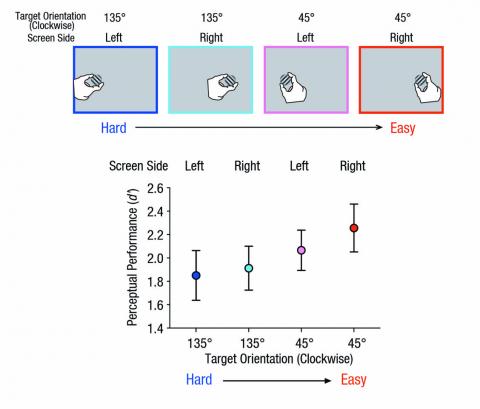
The study, published in the journal Psychological Sciences in September, looked at how action fluency affects the sensitivity of early-stage visual perception, such as orientation.
Volunteer participants in the study prepared an action—such as grasping—while concurrently performing an orientation-change-detection task. Researchers found that as actions became more fluent, such as as grasping errors decreased, perceptual-discrimination performance also improved.
“We found that grasping training prior to discrimination enhanced subsequent perceptual sensitivity, supporting the notion of a reciprocal relation between perception and action," said Joo-Hyun Song, an associate professor of cognitive, linguistic and psychological sciences who is affiliated with the Carney Institute for Brain Science.
The study is co-authored by Song and Jianfei Guo, a graduate student in Brown’s Department of Cognitive Linguistic & Psychological Sciences. Read the full study.